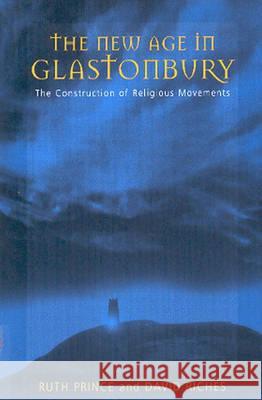The New Age in Glastonbury: The Construction of Religious Movements » książka
The New Age in Glastonbury: The Construction of Religious Movements
ISBN-13: 9781571817921 / Angielski / Miękka / 2001 / 312 str.
"There is much to be admired in the volume ... the authors do present a provocative analysis that could serve as a spingboard for classroom discussion ... It would be an ideal case study for an undergraduate course on the New Age." - Religious Studies Review The New Age movement is a twentieth-century socio-cultural phenomenon in the Western world with Glastonbury as one of its major centers. Through experimenting with a number of ways of analyzing this movement, the authors were able to develop a novel theory of social religious movements of broad applicability. Based around contradictions relating to such central anthropological concepts as communitas, egalitarianism, individualism, holism, and autonomy, it reveals the processes by which, having abandoned a mainstream lifestyle, people come to build up a counter-culture way of life. Drawing on their own work on tribal shamanistic religions, the authors are able to point out interesting similarities between the latter and the Glastonbury New Age movement. Not only that: their model allows them to explain such wide-ranging social and religious movements as the Hutterites, the Kibbutz, and Green communes. In fact, the authors argue, these movements may be regarded as variations of the Glastonbury type. Ruth Prince is currently working as an independent researcher in the United States. David Riches is Senior Lecturer in Social Anthropology at the University of St Andrews.
"There is much to be admired in the volume ... the authors do present a provocative analysis that could serve as a spingboard for classroom discussion ... It would be an ideal case study for an undergraduate course on the New Age." · Religious Studies ReviewThe New Age movement is a twentieth-century socio-cultural phenomenon in the Western world with Glastonbury as one of its major centers. Through experimenting with a number of ways of analyzing this movement, the authors were able to develop a novel theory of social religious movements of broad applicability. Based around contradictions relating to such central anthropological concepts as communitas, egalitarianism, individualism, holism, and autonomy, it reveals the processes by which, having abandoned a mainstream lifestyle, people come to build up a counter-culture way of life. Drawing on their own work on tribal shamanistic religions, the authors are able to point out interesting similarities between the latter and the Glastonbury New Age movement. Not only that: their model allows them to explain such wide-ranging social and religious movements as the Hutterites, the Kibbutz, and Green communes. In fact, the authors argue, these movements may be regarded as variations of the Glastonbury type.Ruth Prince is currently working as an independent researcher in the United States.David Riches is Senior Lecturer in Social Anthropology at the University of St Andrews.











